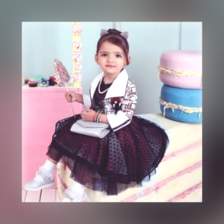The Electronic Intifada 24 May 2024

Abed is one of many teenagers killed during the Gaza genocide.
We have known Akram since we were young. He is a friend of my father.
Akram has lived next to his two sisters for many years. He is younger than them.
They doted on him as if they were his mother. And, in a sense, they had assumed that role as their own mother had died.
Akram had four sons and one daughter.
Majduleen, his daughter, was especially close to him. A student of English, she was very bright.
Tragically, she died because of a health issue during her final year at college. Her loss affected Akram deeply.
After Israel declared its current war, it ordered a mass evacuation from the northern part of Gaza.
But Akram and his family remained in the north – more specifically in Jabaliya refugee camp. They did not even leave when Israeli troops carried out their first ground invasion of the camp during this war.
For more than a month, their house was effectively under siege.
They lived in a state of true terror.
They could hear the screams of injured people and the wailing of mothers whose children had been killed.
They could hear the sound of buildings collapsing. And the shells and missiles being fired toward them.
Most of the walls in their home were damaged.
Food was scarce. It was too dangerous to venture outside and search for anything that might keep hunger at bay.
At one point, Israeli soldiers knocked on the door of their house. The family thought that they would all be killed.
They did not open the door. After knocking repeatedly, the soldiers eventually left.
The family were relieved. They thought they were as unscathed as they could be.
But then Israel attacked some warehouses very close to the family’s home.
The resulting fire spread to their home. A neighbor managed to rescue them and gave them shelter.
When the Israeli troops withdrew from Jabaliya, the family went back to what remained of their home. They undertook some rudimentary repair work and moved back in.
Israeli troops invaded Jabaliya once again this month.
The new – and ongoing – offensive took everyone by surprise. Everyone had hoped that Israel’s previous withdrawal would be irreversible.
When he heard about the new invasion, Akram had the same idea as before: He would not leave the camp.
Yet his wife and sons insisted that they could not cope with another invasion.
Akram contended that the invasion would affect other areas of the camp. The Israelis had attacked the family’s neighborhood in the earlier invasion and would be unlikely to do so again.
He did not, however, try to dissuade his wife and sons from leaving. And so they went to the Sheikh Radwan area of Gaza City.
Akram and his sisters remained in Jabaliya.
Distressing
We tried to keep in touch with him. But the communications network was very poor.
When we made contact with his sons, they told us that they had not heard from him.
On 16 May, Akram’s 15-year-old son Abed decided that he would head toward Jabaliya and check on his father. Abed did not give his mothers or brothers advance notice of his perilous journey.
When Abed managed to reach the family’s home, Akram was taken aback.
How had Abed succeeded in traveling to Jabaliya when shells and missiles were being fired from all directions?
Abed replied that God had accompanied him. After checking on his father and his aunts, Abed said goodbye.
They went to the door of his home. Akram told Abed to be careful.
Before Abed had closed the door, he was hit by shrapnel.
Akram ran toward Abed as he lay on the ground. The shelling was intense and nobody was available to help.
There were no ambulances or taxis or even donkey-drawn carts.
Akram had to carry his son. He went to Kamal Adwan hospital in the Beit Lahiya area of northern Gaza by foot.
Abed was pronounced dead.
Akram took his son’s shrouded body to his mother and brothers. They buried him in a Sheikh Radwan cemetery.
It was extremely distressing for Akram. He blamed himself for Abed’s martyrdom.
As soon as his son was buried, Akram became preoccupied with his sisters.
He talked about returning to Jabaliya. But his sons tried to prevent him from doing so.
They feared that he would be killed just as Abed had been.
Akram’s sisters are still trapped in Jabaliya. It is not possible to contact them.
Asil Almanssi is a writer based in Gaza.





